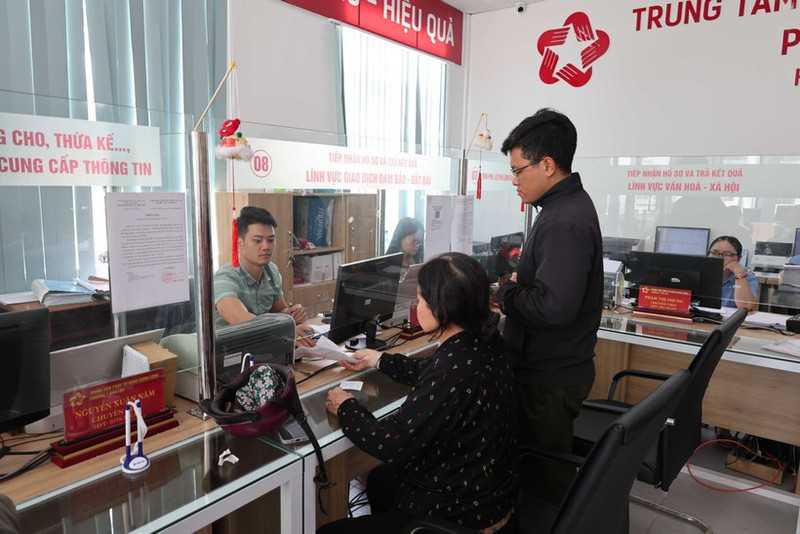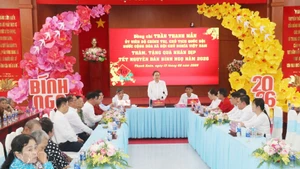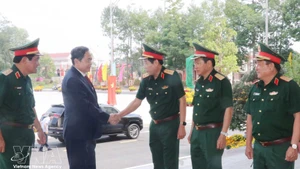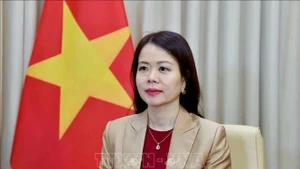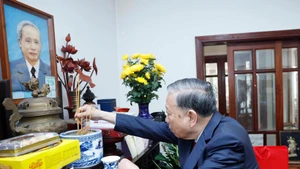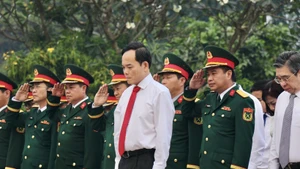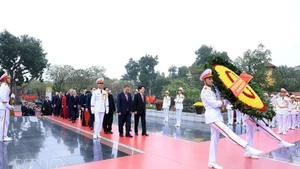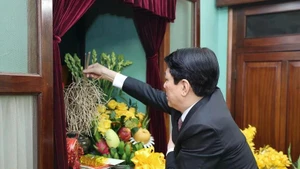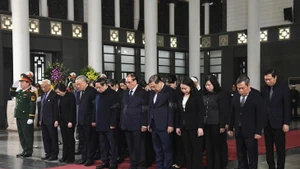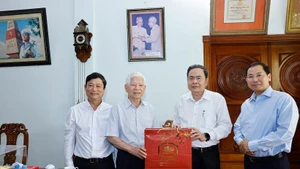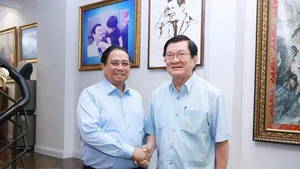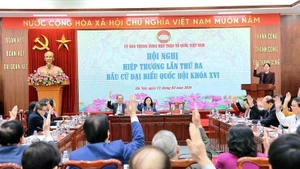The Party Central Committee's Politburo and Secretariat have urged efforts to further refine and enhance the efficiency of the political system and the two-tier local government model, according to Conclusion No. 202-KL/TW signed by Politburo member and Permanent Member of the Secretariat Tran Cam Tu on October 31.
The conclusion came following the report of the Party Central Committee’s Organisation Commission on the performance of the political and two-tier local government system.
The Politburo and Secretariat agreed with the key contents and recommendations in the report, acknowledging the proactive and effective performance of all-level Party committees and organisations, the Government and National Assembly Party Committees, and the Party Central Committee’s Organisation Commission in addressing challenges and ensuring smooth operation of the political system and the two-tier local administration model.
The Politburo and Secretariat requested Party Committees at all levels and relevant central agencies to promptly implement assigned tasks under previous conclusions, especially Conclusion No. 195-KL/TW dated September 26, 2025 on the two-tier administrative model.
They urged strict adherence to the Politburo’s personnel regulations, stronger accountability from leaders, and effective evaluation and deployment of officials. The grassroots level was directed to shift from a passive to a proactive and enabling governance model, enhancing socio-economic management and responding promptly to public and business needs.
The Government and National Assembly Party Committees were assigned to refine institutional frameworks related to decentralisation, delegation of power, and administrative procedures, particularly in finance, planning, land, and public assets.
Matters under the Government and the Prime Minister’s authority should be addressed immediately, while those under the National Assembly’s jurisdiction should be included in the upcoming 10th session of the 15th legislature. All related tasks should be completed by December 15, 2025.
The Government Party Committee was directed to review and revise all sectoral legal documents to ensure coherence and feasibility under the two-tier model; restructure and improve personnel capacity; ensure funding for digitalisation, equipment upgrades, and infrastructure, prioritising remote and disadvantaged areas; integrate shared national databases and upgrade digital infrastructure at the commune level; and propose commendations for outstanding collectives and individuals in implementing Resolution No. 18-NQ/TW. These tasks must be completed by December 15.
Party Committees of the Government, the Viet Nam Fatherland Front, and central-level mass organisations were assigned to accelerate the restructuring of public service units, state-owned enterprises, and press agencies under their jurisdiction, completing these tasks within 2025.
At the same time, the Politburo and Secretariat approved the immediate updating of land use, construction, and specialised plans—including national defence and security land—to reflect the repurposing of public facilities for administrative, educational, healthcare, cultural, and socio-economic uses in line with local planning laws. Provincial and municipal Party Committees were tasked with guiding the process, resolving emerging issues, and reporting results to higher authorities.
They also authorised the Standing Boards of provincial-level Party Committees to adjust working regulations of the Party Committees affected by structural changes to ensure unified leadership.
In the conclusion, the Politburo and Secretariat also gave directions related to the confirmation of residence evaluation for Party members, as well as the review and management of public assets, support for disadvantaged areas, and the strengthening of inspection of the allocation and use of public offices and facilities.
